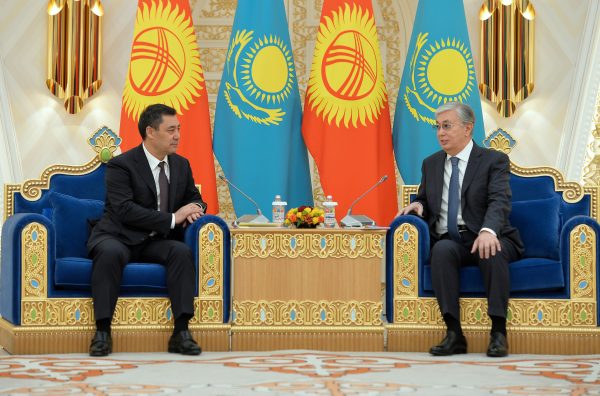
It is the fifth day since protests began in Kazakhstan, turning violent in recent days while the government shut down the internet. Here in neighboring Kyrgyzstan, meanwhile, people have actively expressed their concerns about the crisis next door on various social networks.
The mood is as if the unrest were happening here.
People are quite emotional in voicing their support for our neighbors, whom we see as a brother nation. Therefore, the news that the Kyrgyz army would participate in the Collective Security Treaty Organization (CSTO) coalition to support Kazakh government forces to fight against what they have labeled “foreign terrorists” was immediately and widely condemned.
People in Kyrgyzstan began signing a petition against participating and a number of activists protested in front of the main government buildings in the capital, Bishkek. Kyrgyz also worry that participating in the CSTO mission may cause a rift between two neighbor nations. They called on the president and the parliament not to send Kyrgyz soldiers to support the corrupt Kazakh dictatorship against its people. They see the CSTO a weapon of Russian President Vladimir Putin, with which Russia can fight proxy wars to strengthen dictatorships in the former-Soviet satellite states.
Kyrgyz also note that the CSTO rejected Bishkek’s requests for support during the inter-ethnic clashes in 2010 and when the Tajik army attacked Kyrgyz civilians in bordering villages last year. Activist lawyers point out that the CSTO’s mandate to intervene is aimed at situations in which there is an act of aggression by a foreign state, which is clearly not the case now.
Kazakh President Kassym-Jomart Tokayev, however, made his request for the CSTO intervention claiming that the country was not just experiencing domestic social unrest but an act of aggression by “foreign terrorists.”
On January 7, the Kyrgyz parliament approved President Sadyr Japarov’s proposal to send Kyrgyz troops as part of the CSTO coalition to Kazakhstan. The president may feel obliged to do so, as he understands that his own country is notorious for its numerous revolutions. Revolutions and protests have overthrown three Kyrgyz presidents in 30 years and Japarov must know that he may well face the same fate. As such, he may hope that by supporting the CSTO intervention today in Kazakhstan, he is securing similar CSTO support for himself in the future.
Meanwhile, for Russia, the Kazakhstan crisis is an opportunity to flex its muscles ahead of talks on Ukraine next week with Western leaders. It is also a chance to strengthen the role of the CSTO, as this will be the organization’s first military intervention. Until now, the CSTO has mostly been a symbolic anti-Western body without much weight in the international arena. The Kazakhstan crisis is thus a model demonstrating how Russia can quickly mobilize forces if the regimes favored by Moscow are under threat.
The Kazakhstan Crisis: A View From Kyrgyzstan
Source: Frappler

0 Comments